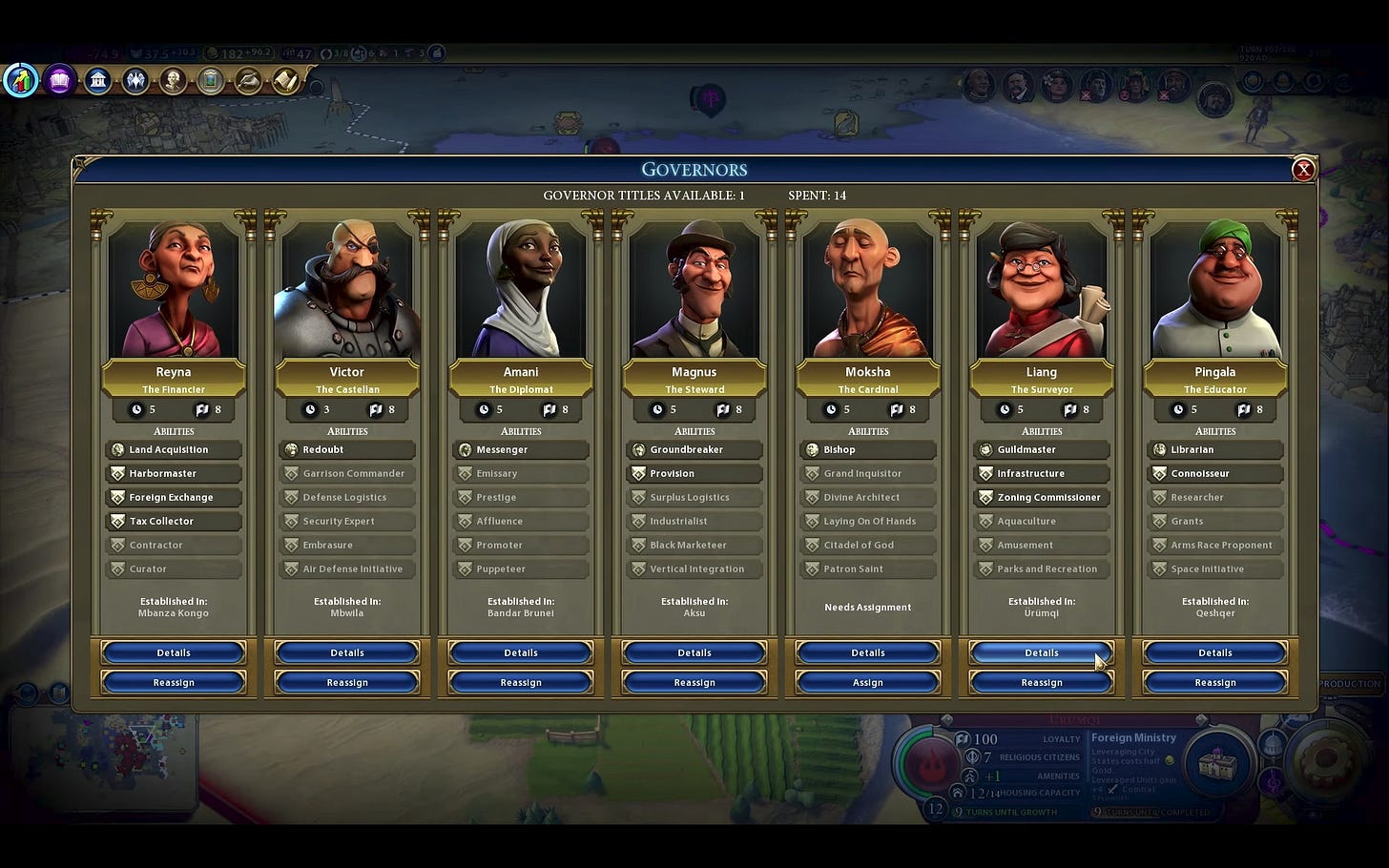On Towards the Stars: Governors Part 1
[This post is part of a larger strategy guide for Civilization 6]
The right governor in the right city can be the difference between holding or losing the city in war, having a production powerhouse, getting a critical suzerain, preventing an outpost from flipping due to loyalty, and more. Because governors have so many different impacts on how a city grows, it's rare that a single governor ought to be in a single city for the entire game. Instead, you have to be highly aware of which governors are where and how they are being promoted. In this part of the guide, we'll briefly cover each governor, when they may be useful, and some scenarios where you may want to leverage their unique abilities.
Note that governors are extremely different in the BBG version of the game. Check the BBG change-log for a full description of governor abilities.
Using governors to hold disloyal cities
Though each governor has a totally different promotion tree, they all share a few properties.
First, any city with a governor gets an automatic +8 loyalty. Normally, when moving a governor from one city to another, the governor bonuses kick in only after a 5 turn delay. This bonus kicks in the moment a governor begins transitioning to the new city. In other words, if you notice a city having loyalty problems, you can generally solve the issue by simply moving a governor.
Second, every governor can get bonuses from the Audience Chamber Government Plaza building (+3 food, +3 housing to all cities with governors, and +1 governor title).
In my opinion, these are perhaps the most important governor abilities. +8 loyalty is a huge bonus, one that can stabilize dark ages and can allow for fairly aggressive forward settlements. When combined with audience chamber, as well as policy cards that give additional loyalty boosts or amenities, you can use governors to hold onto cities that are otherwise dead weight or turn small slow growing cities into powerhouses.
Since these abilities apply to every governor, I generally find myself picking up most of the governors most games.
Governor titles
Governor titles are a resource, like everything else. You don't have to use a title on the turn you earn it. It's often useful to hold onto a governor title so you can (for example) react quickly to a declaration of war.
Over the course of a game, you'll probably get something like 15 governor titles. Most of these come from researching civics or building up your government plaza. A few may come from wonders, great people, or tribal villages. There are 7 governors with 6 promotions each, for a total of 42 possible titles. This means you have to be pretty careful about which governors you pick up, and in what order.
It's useful to think of governor titles in terms of pacing. Because most titles are on the civics tree, you can kinda predict when they come online — you get two in the ancient era (from Early Empire and State Workforce), another two in the classical era (Defensive Tactics and Recorded History), another two in the medieval era (Guilds and Medieval Faires) and so on. Because the rate of getting titles is fairly predictable, you can plan around which promotions you might want at various stages of your empire. For example, I often only get one governor and promote them using my first two titles, instead of getting two separate governors. This is because in the ancient era I only really have one good city (the capital), likely don't have loyalty issues, and don't have any of my other per-governor bonuses like Audience Chamber online yet.






